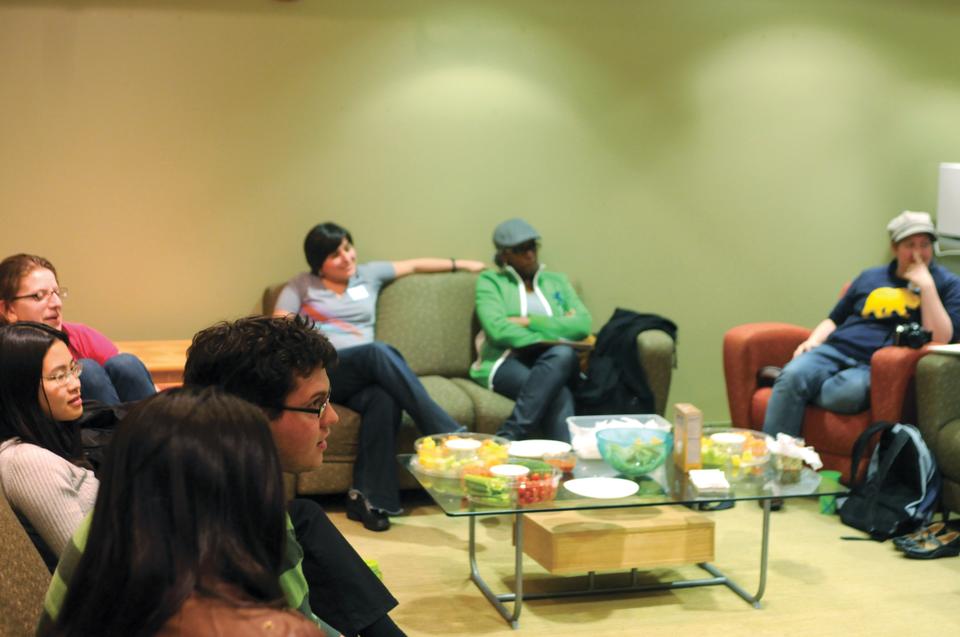
News
Summers Will Not Finish Semester of Teaching as Harvard Investigates Epstein Ties

News
Harvard College Students Report Favoring Divestment from Israel in HUA Survey

News
‘He Should Resign’: Harvard Undergrads Take Hard Line Against Summers Over Epstein Scandal

News
Harvard To Launch New Investigation Into Epstein’s Ties to Summers, Other University Affiliates

News
Harvard Students To Vote on Divestment From Israel in Inaugural HUA Election Survey
Students Connect Race, Queerness
Groups Confront Complex Identities

Students of various genders, races, and cultural backgrounds gathered at an event hosted by the Harvard College Women’s Center, Queer Students and Allies, and BlackOut last night to discuss queer and ethnic communities and their shared status as marginalized identities in American society.
“It’s all about different perspectives, starting conversations, and talking about experiences to build partnerships,” said Adaora I. Asala, who facilitated the discussion and co-founded Queer Women of Color and Friends, a Boston social networking group.
Asala talked to attendees about ways for queer Harvard students of color to find support in the university community. Students expressed their frustration at how campus ethnic groups rarely address queer issues and how LGBT student groups often disregard questions of ethnicity, race, and culture.
“There are a lot of queer students who are afraid to express themselves on campus,” said Miguel Garcia ’12, “There has always been something missing in QSA, something that doesn’t allow me to reconcile my immigrant experience.”
Garcia said that he is interested in forming a support group for queer Latinos on campus, and Taj E. Tucker ’12 said that he hopes to collaborate with Garcia in reaching out to ethnic minorities.
“We’re trying to find a space where people of all different communities can be comfortable,” Tucker said.
Morgan L. Haven-Tietze ’10, a member of the Harvard Transgender Task Force, said that it is important for cultural groups to acknowledge queerness, and for LGBT groups to acknowledge ethnicity, in order to facilitate connections between marginalized identities.
Haven-Tietze said that starting conversations about intersecting communities can help individuals connect with other students facing similar questions of identity.
“It’s important to make spaces inclusive for whoever wants to be there,” Haven-Tietze said. “You don’t always get a chance at Harvard to hear what everyone has to say.”
Asala similarly said that creating an open space to discuss questions of intersecting identities would help queer women of color and their allies gain a stronger voice on campus and beyond.
“It’s a challenge to marry all of my different identities and keep them in one body—being Nigerian, being queer, being a woman in science, being a woman,” Asala said. “We want to create an avenue where people from all walks of life can bring their identities together.”
—Staff writer Alice E.M. Underwood can be reached at aeunderw@fas.harvard.edu.
Want to keep up with breaking news? Subscribe to our email newsletter.
